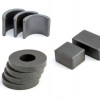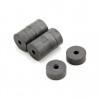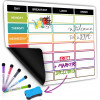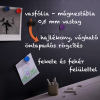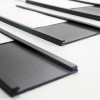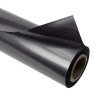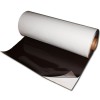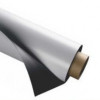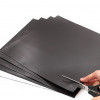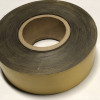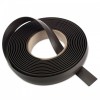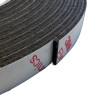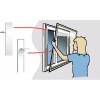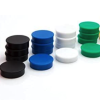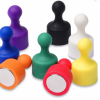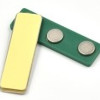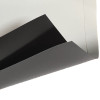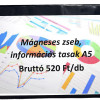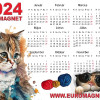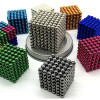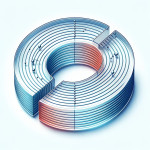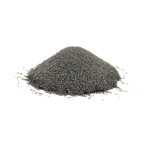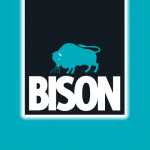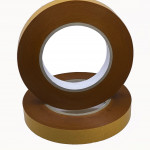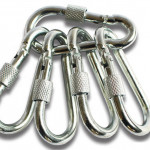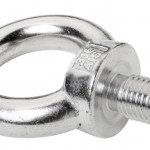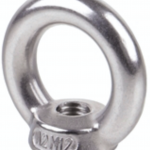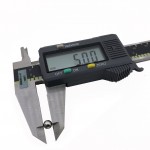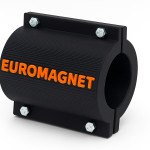A mágnesek használatánál, szerelésénél, megmunkálásánál, figyelembe kell venni az alábbiakat:
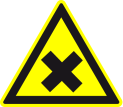 1. A mágneseket száraz, szobahőmérsékletű helyen, a biztonsági csomagolásban, elzárva kell tárolni!
1. A mágneseket száraz, szobahőmérsékletű helyen, a biztonsági csomagolásban, elzárva kell tárolni!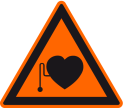 2. A mágnesek, mágneses eszközök, rendszerek használatától a PACEMAKER-rel rendelkező személyek tartózkodjanak. Amennyiben ilyen eszközök használata, megközelítése elengedhetetlen kérjük, konzultáljon orvosával az esetleges balesetek elkerülése érdekében!
2. A mágnesek, mágneses eszközök, rendszerek használatától a PACEMAKER-rel rendelkező személyek tartózkodjanak. Amennyiben ilyen eszközök használata, megközelítése elengedhetetlen kérjük, konzultáljon orvosával az esetleges balesetek elkerülése érdekében!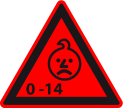 3. A permanens mágnesek nem játékok, gyermekek azokat csak szülői felügyelet mellett használhatják! A mágnes nem alkalmazható játékszerként. Fokozottan ügyeljen, hogy a mágnesek gyermekek kezébe ne kerüljenek. A bélrendszerbe jutott mágnesek súlyos belső sérüléseket okozhatnak, a mágnesek 10 éven aluliak számára nem ajánlott!
3. A permanens mágnesek nem játékok, gyermekek azokat csak szülői felügyelet mellett használhatják! A mágnes nem alkalmazható játékszerként. Fokozottan ügyeljen, hogy a mágnesek gyermekek kezébe ne kerüljenek. A bélrendszerbe jutott mágnesek súlyos belső sérüléseket okozhatnak, a mágnesek 10 éven aluliak számára nem ajánlott!
 4. A mágnesek felületvédelme egyes esetekben fém allergiát okozhat, a fémes anyagokra érzékenyeknél allergiás reakciókat válthatnak ki.
4. A mágnesek felületvédelme egyes esetekben fém allergiát okozhat, a fémes anyagokra érzékenyeknél allergiás reakciókat válthatnak ki.
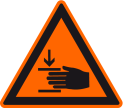 5. A mágneses eszközök, az elemi mágnesek még jelentős távolságból is képesek vonzó erőt kifejteni, a nagy mágneseknél ez a sérülések, balesetek kockázatát növeli.
5. A mágneses eszközök, az elemi mágnesek még jelentős távolságból is képesek vonzó erőt kifejteni, a nagy mágneseknél ez a sérülések, balesetek kockázatát növeli.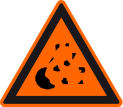 6. A permanens mágnesek kemény, törékeny, rideg anyagok, összeütközésükkor sok éles, apró szilánkdarab törhet le, mely a balesetek kockázatát növeli. Mindig viseljen megfelelő védőfelszerelést (védőkesztyű, védőszemüveg, porvédő, stb.…) a mágnesek megmunkálása közben!
6. A permanens mágnesek kemény, törékeny, rideg anyagok, összeütközésükkor sok éles, apró szilánkdarab törhet le, mely a balesetek kockázatát növeli. Mindig viseljen megfelelő védőfelszerelést (védőkesztyű, védőszemüveg, porvédő, stb.…) a mágnesek megmunkálása közben! 7. Az állandó mágneseket minden oldalról mágneses mező veszi körül, az arra érzékeny elektronikus, mechanikus berendezésekre hatást gyakorolhat, azok mérési eredményeit befolyásolhatja.
7. Az állandó mágneseket minden oldalról mágneses mező veszi körül, az arra érzékeny elektronikus, mechanikus berendezésekre hatást gyakorolhat, azok mérési eredményeit befolyásolhatja. 8. A mágneses terek károsan befolyásolhatják a számítógépek, monitorok, lemezek, hitelkártyák, az egyéb mágneses elven működő adathordozókat, illetve a mágneses elven működő eszközöket (pl.: villanyóra, gázóra, vízóra, transzformátorok), így ezektől kellő távolságban kell az állandó mágneseket tartani.
8. A mágneses terek károsan befolyásolhatják a számítógépek, monitorok, lemezek, hitelkártyák, az egyéb mágneses elven működő adathordozókat, illetve a mágneses elven működő eszközöket (pl.: villanyóra, gázóra, vízóra, transzformátorok), így ezektől kellő távolságban kell az állandó mágneseket tartani.
A fogyasztásmérő berendezések befolyásolását a törvény bünteti, még próbaként se tegye a mágnest a fogyasztásmérő, vagy más mágneses elven működő berendezésekre, mert maradandó károsodást okozhat a működésükben!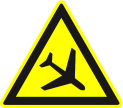 9. A légi szállítmányozás, közlekedés során a mágnesek szállításánál az IATA irányadó szabályozását kell figyelembe venni. A mágnesek csomagolását olyan módon kell megoldani, hogy a mágneses mező ne lépje át a csomagolás falát.
9. A légi szállítmányozás, közlekedés során a mágnesek szállításánál az IATA irányadó szabályozását kell figyelembe venni. A mágnesek csomagolását olyan módon kell megoldani, hogy a mágneses mező ne lépje át a csomagolás falát.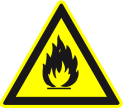 10. Robbanásveszélyes környezetben ne próbálja megmunkálni a mágneseket, azok megmunkálása során keletkezett port, vagy az apróbb részeket ne lélegezze be!
10. Robbanásveszélyes környezetben ne próbálja megmunkálni a mágneseket, azok megmunkálása során keletkezett port, vagy az apróbb részeket ne lélegezze be!  11. A felületvédelmet igénylő mágnesek esetében a sérült felületvédelem korrodálódáshoz vezethet. A mágneseket száraz helyen kell tárolni.
11. A felületvédelmet igénylő mágnesek esetében a sérült felületvédelem korrodálódáshoz vezethet. A mágneseket száraz helyen kell tárolni. 12. A permanens mágneseket nem szabad radioaktív környezetbe helyezni, a ritkaföldfém mágnesek radioaktív környezetben robbanásveszélyesek!
12. A permanens mágneseket nem szabad radioaktív környezetbe helyezni, a ritkaföldfém mágnesek radioaktív környezetben robbanásveszélyesek! 13. A maximális munkahőfokot mindig vegye figyelembe a mágnesek megmunkálásánál, a munkahőfok feletti hőmérsékleten a mágnesek mágneses tulajdonságai csökkennek.
13. A maximális munkahőfokot mindig vegye figyelembe a mágnesek megmunkálásánál, a munkahőfok feletti hőmérsékleten a mágnesek mágneses tulajdonságai csökkennek.
Gyakori kérdések, fontos tudnivalók
- Az EUROMAGNET HUNGARY Kft. nem vállal felelősséget olyan károk esetén, melyek a mágnesek szakszerűtlen használatából következnek. Kérjük olvassa el figyelmesen a balesetvédelmi utasításokat és az egyéb tudnivalókat, mielőtt mágnesekkel dolgozna!
- A mágnesek törékeny, rideg anyagok, keménységükből adódóan könnyen eltörhetnek , megrepedhetnek szakszerűtlen használat esetén. A mágneseket semmiképpen ne hagyja egymáshoz túl közeli távolságban, mert azok könnyen összeütközhetnek és eltörhetnek, az így összeütköző mágnesek könnyen sérüléseket okozhatnak, ha a hasadékok szétrepülnek. Mindig viseljen védőszemüveget és védőkesztyűt!
- Gyermekek számára a mágnesek nem alkalmasak játékszerként, soha ne hagyja felügyelet nélkül gyermekét a mágnesekkel, mert fennáll a veszélye annak, hogy a gyermekek a mágneseket bedugják a konnektorba, vagy lenyelik. A lenyelt mágnesek a belekben megragadva súlyos belső sérüléseket okozhatnak, így 14 év alatti gyermekek számára a mágnes nem ajánlott!
- A mágnesek veszélyt jelentenek az elektronikus berendezésekre, a hitelkártyákra, adathordozókra. Soha ne tegye a mágneseket ezek közvetlen közelébe. A szívritmus-szabályozó készülékeket is zavarhatja egy nagyobb mágnes – kétely esetén legyen nagyon elővigyázatos.A mágnesek könnyedén okozhatnak akár zúzódásokat is, ezért ajánlott a megfelelő védőfelszerelés használata. Mindig ügyeljünk arra, hogy a mágneseket kellő távolságban helyezzük el egymástól.
- A nikkelezett felsőréteg burkolatának lesúrlódása vagy lehasadása szabályos használat esetén is megtörténhet. A mágnesek rendszerint egy vastag nikkel, arany vagy ezüstburkolattal vannak bevonva, de a mágnesek többszöri ütközése esetén a kapcsolódási pontnál nagy a nyomás, ami elkerülhetetlenül a burkolat eltűnéséhez, kopásához vagy hasadásához vezet. A nagyobb mágneseket ezért lehetőleg egy kartonnal, hungarocellel, fával vagy lágy papírral el kell választani egymástól és nem szabad őket hosszú ideig fémfelületen tartani.
- Semmiképpen ne próbálja meg a mágneseket fűrészelni vagy kifúrni, mivel a mágnesek eltörhetnek. A mágneseket csak speciális gyémánt szerszámokkal és folyamatos hűtéssel lehet megmunkálni. Tartsa távol a mágneseket nyílt tűztől és forróságtól. (80 foknál nagyobb hőmérséklet esetén a neodímium (N sorozat) mágnesek hamar elvesztik mágnesességüket.)
- A legtöbb szupermágnes nikkellel van bevonva. A nikkel-allergia igen gyakori betegség , igen könnyű megszerezni, ha az ember tartós kapcsolatba kerül olyan tárgyakkal, amelyekben nikkel található. A legtöbb esetben ezek az allergiás reakciók akkor jönnek elő, ha az ember nikkelt tartalmazó ékszereket visel, vagy tartós kapcsolatba kerül valamilyen nikkelezett tárgyal. Ha nikkel-allergiában szenved, kerülje a tartós kapcsolatot ezekkel a tárgyakkal.

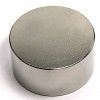
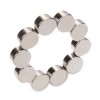
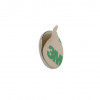
-100x100w.jpg)
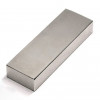
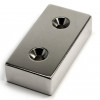
-100x100.jpg)
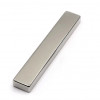
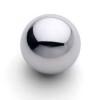
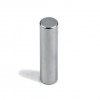
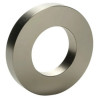
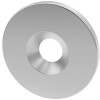
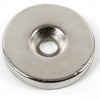
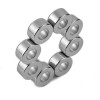
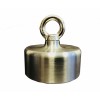
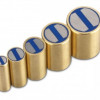
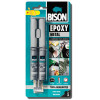
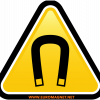
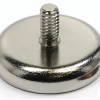
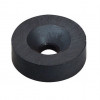
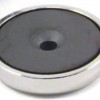
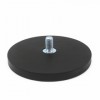
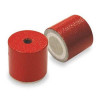
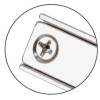
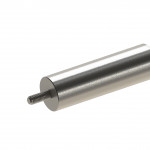
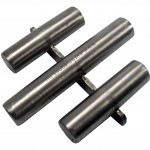
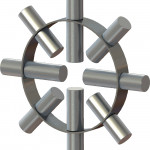
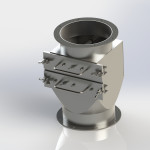
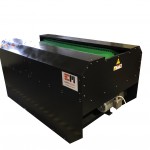
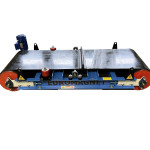
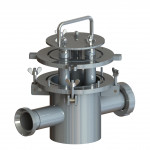
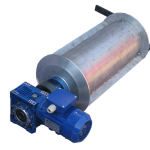
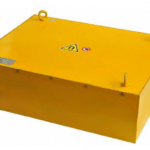
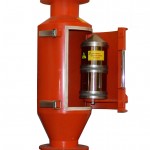
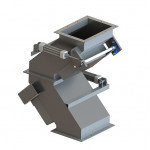
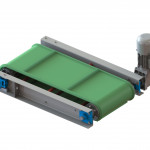
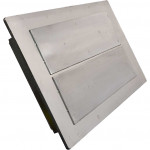
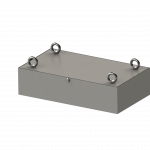
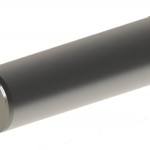
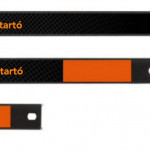
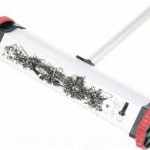
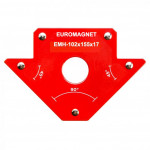
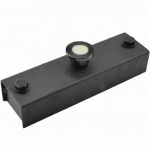
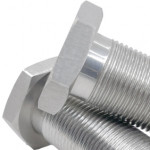
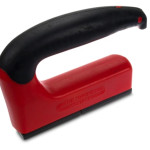
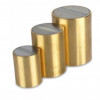
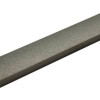
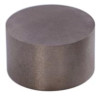
-100x100h.jpg)
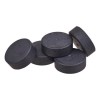
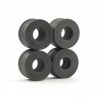
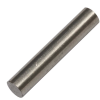
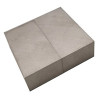
-100x100.jpg)
